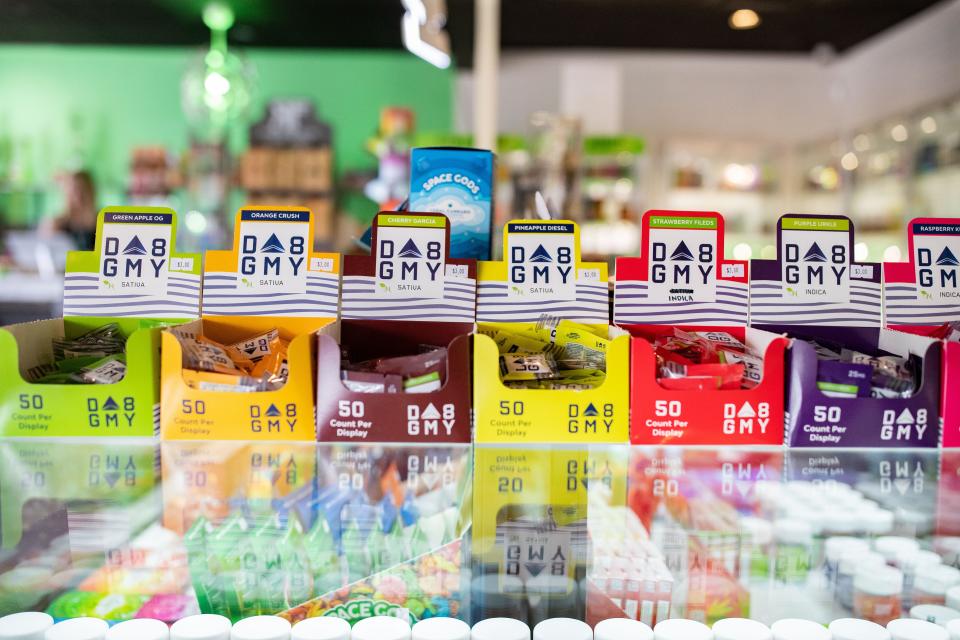Keep NJ kids safe. Regulate delta-8 THC products
As the adult use cannabis market unfolds in New Jersey, state lawmakers have more recently been deliberating on what to do with delta-8 THC products — a synthesized strain of cannabis that is technically legal due to a loophole in the 2018 federal hemp farm bill.
Unlike delta-9 THC, the traditional psychoactive compound naturally occurring in cannabis plants, delta-8 THC is chemically converted from cannabidiol, or CBD, a non-psychoactive compound that was made legal in the 2018 hemp bill and is often — without much if any substantiation — marketed as a remedy for anxiety, pain relief and other common ailments.
While delta-8 conversion from CBD produces a “weaker” form of psychoactive THC, the unregulated nature of its production leads to an inherent lack of knowing what you are ingesting when you consume delta-8 products, available as smokable leaves, concentrates and edibles such as gummies and chocolate for purchase outside cannabis dispensaries in corner stores and gas stations with far less restrictions than cigarettes, vape products and alcohol.

For example, cases of the lethal lung disease outbreak in 2019 that caused 68 deaths across 29 states, e-cigarette or vaping use-associated lung injury — EVALI — were eventually traced back to a small THC vape manufacturer, Dank Vapes, that was using vitamin E acetate in its ingredients. No new cases of EVALI have been reported since 2020, effectively demonstrating the need for regulatory oversight of products such as delta-8 THC that can be synthesized and sold in vapes.
Furthermore, New Jersey’s adult use cannabis law has strict guidelines for edible cannabis packaging, restricting the packaging to an aluminum zip-lock bag with a white and black label in order to limit youth attraction. Delta-8 manufacturers, on the other hand, face no such exemptions and regularly market their products in attractive packaging that resembles popular candies like Sour Patch Kids and gummy worms. Youth often refer to these products as “marijuana light” which demonstrates our youth are well aware of its psychoactive properties.
From January 2021 to February 2022, national poison control centers reported over 2,000 cases of accidental ingestion attributed to delta-8 THC products. By limiting the availability of delta-8 products, we can take additional measures toward protecting youth from unintentional exposure to mind-altering chemicals during a vulnerable period of their development.
Legislation that would allow for state oversight and regulation for delta-8 products — is pending in the New Jersey Legislature. The bill recently cleared committees in both the Assembly and Senate and passed a vote in the full Assembly by a wide margin with bipartisan support.
As the delta-8 bill inches closer to a final vote, NJPN urges members of the Legislature to consider the positive public health benefit of regulating delta-8 products to keep our youth safe and send the measure to the governor’s desk for signature.
To learn more about New Jersey’s efforts to prevent youth substance use by building more resilient communities through education and environmental change, visit www.njpreventionhub.org.
Diane Litterer is executive director and CEO of the New Jersey Prevention Network, based in Tinton Falls.
This article originally appeared on NorthJersey.com: NJ Legislature must regulate delta-8 THC products

